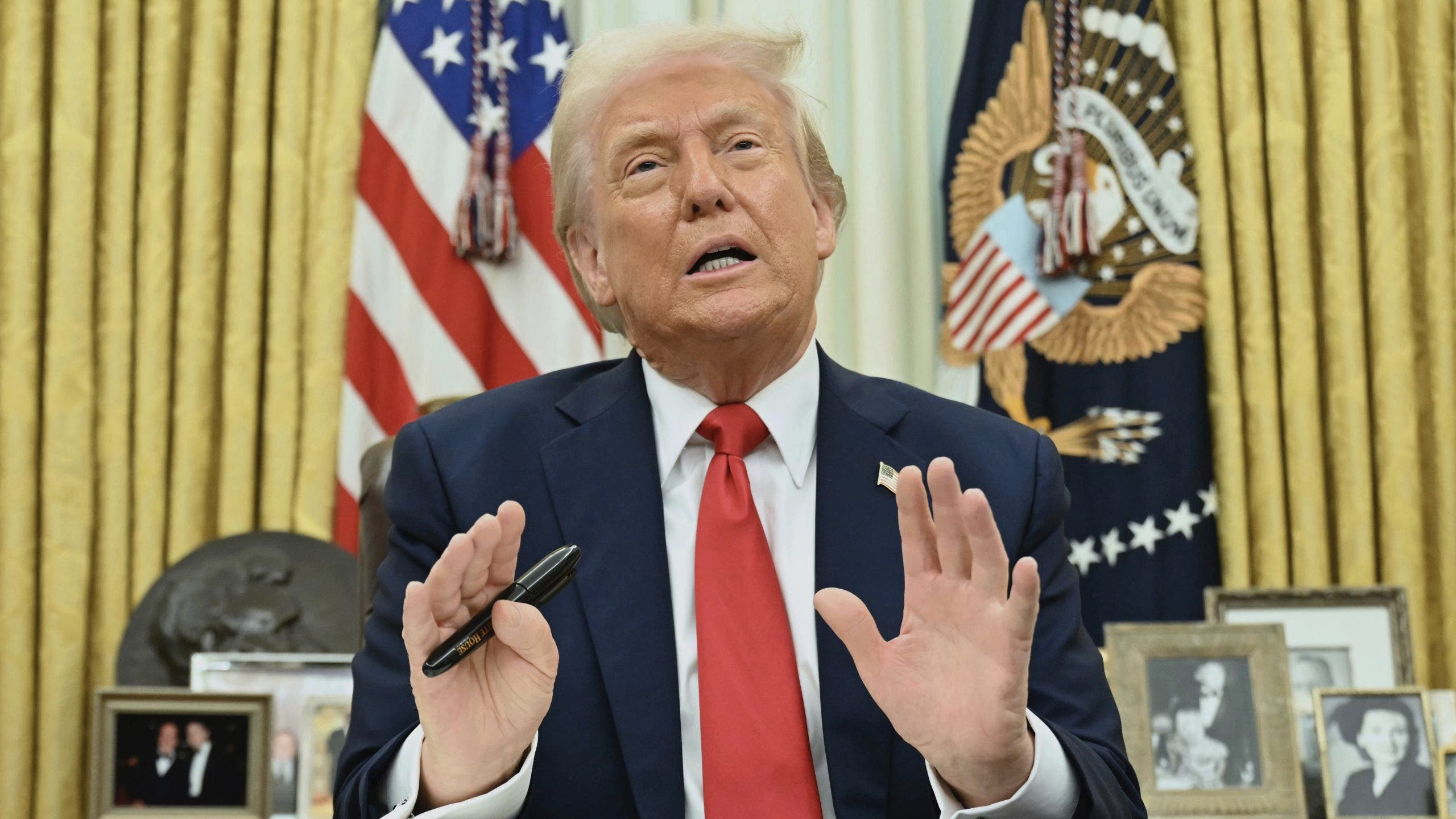 A US Postal Service employee makes deliveries in Northbrook, on June 3, 2024.
AP
A US Postal Service employee makes deliveries in Northbrook, on June 3, 2024.
AP
Mail call: Time To Privatize the USPS
The United States Postal Service “lost $9.5 billion shuffling paper around the country in fiscal year 2024” and is projecting another “$6.9 billion loss in fiscal year 2025,” so The Free Press’ Charles Lane wonders, “would privatization be so terrible?” Our “peer nations, including Germany, Japan, Britain, Portugal and the Netherlands, have adopted postal privatization.” Today’s system just doesn’t work: Americans send “one another six billion text messages daily. Half the people surveyed in 2021 hadn’t received a personal letter in five years; 14 percent had never received one.” “This is the age of drones, driverless vehicles, and artificial intelligence. If there’s any part of the federal apparatus that could use a dose of radical disruption, it’s the postal service.”
From the right: The Leak Double Standard
“By all means, let’s talk about ‘leaks’ in the wake of [last] week’s Signal fiasco,” quips The Wall Street Journal’s Kimberley A. Strassel. Yes, “Washington should be concerned that Trump officials blunderingly added a journalist to a Yemen war-planning chat.” But “Compare that with the torrent of leaks that began in the runup to Mr. Trump’s first election.” They ranged from a “scandalous, fact-free ‘dossier’ on fake Trump-Russia collusion” to Jared Kushner’s security clearance. The Senate found “125 news articles containing leaked government information potentially damaging to national security in the first four months of Mr. Trump’s term.” “Hallelujah” that the left and the media “think leaks are a problem,” but until they join with GOP electeds fighting against leaks it’s just one more double standard.
Mideast desk: Why Trump Can’t Beat Houthis
“Attacking the Houthis, who have always given Tehran a big strategic bang for their buck, isn’t likely to cause significant long-term damage,” argues Reuel Marc Gerecht at UnHerd. Indeed, our sparse attacks “are likely refortifying an old Iranian doctrine: that the Islamic Republic’s enemies are willing to attack the clerical regime’s proxies, but not Iran directly.” “Until Iranian supplies are cut off directly, check-mating the Houthis is impossible. “The US and allied navies” are “unlikely to do better until the United States is willing to attack Iranian ports — the primary entrepôts for the Houthis.” Yet “Trump still believes that a nuclear deal with Khamenei is possible. And until he abandons this idea, he’ll likely have no more success against the Houthis than his predecessor.”
Libertarian: Signal’s Surprise Endorsement
“Something of value” we learned from journo Jeffrey Goldberg being included on a Team Trump group chat was that “government officials use the popular encrypted messaging app” Signal “because the intelligence community considers it secure,” observes Reason’s J.D. Tuccille. We “should consider that an endorsement of this technology.” The fact that “administration officials including several from the intelligence community are willing to hold a conversation on the app” is “testimony to the security of the software,” as was CIA Director John Ratcliffe saying that using Signal is standard at the CIA at a March Senate hearing. Still, Tuccille warns, “Nothing is completely safe, of course. People developing security are in a constant race with those trying to compromise it.”
Liberal: Democrats’ Abundance Aversion
“Without an abundance agenda this country is more likely to limp along than to soar,” laments the Liberal Patriot’s Ruy Teixeira. The country’s “shockingly expensive and slow infrastructure projects” hinder “delivering what its people need.” One reason “is an overly burdensome environmental review process.” For Democrats, “cheap, reliable, plentiful energy” must “underpin any abundance agenda” but the party “remains committed to rapid decarbonization.” Dems “seem to forget that working-class voters have little interest in an energy transition.” An uncomfortable truth: The abundance agenda “is incompatible with the modern Democratic Party.” The party puts “ideology and special interests ahead of good governance” — and “working-class voters” — which explains why “Democrats will not necessarily be the natural party of abundance that voters actually want.”
— Compiled by The Post Editorial Board

 By New York Post (Opinion) | Created at 2025-03-30 20:52:24 | Updated at 2025-04-01 18:15:49
1 day ago
By New York Post (Opinion) | Created at 2025-03-30 20:52:24 | Updated at 2025-04-01 18:15:49
1 day ago








